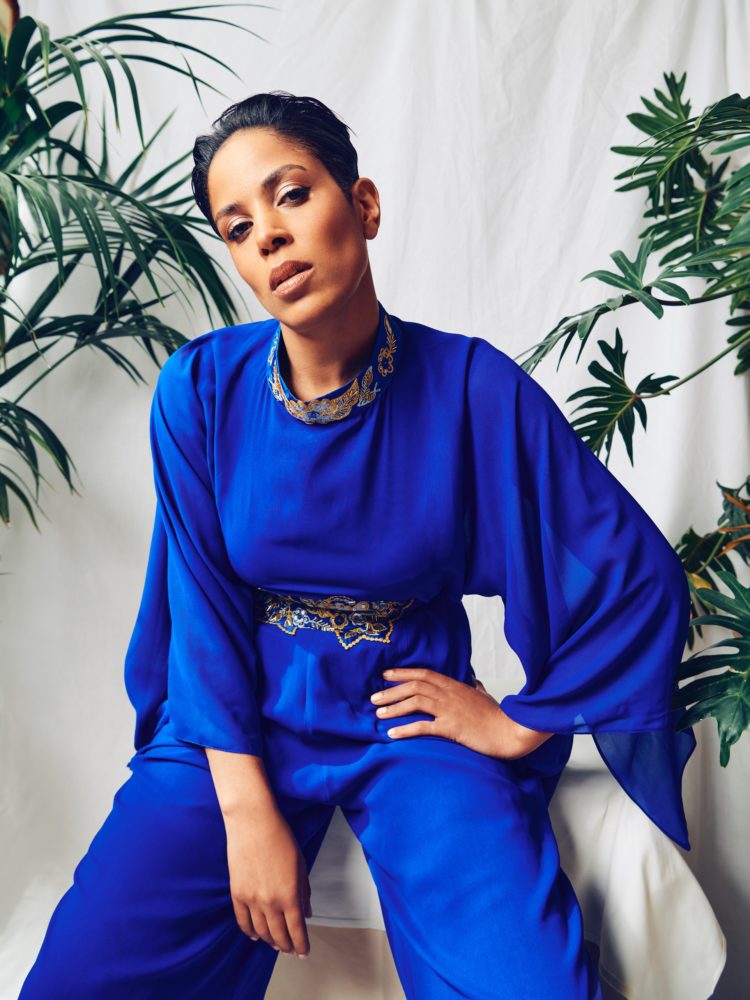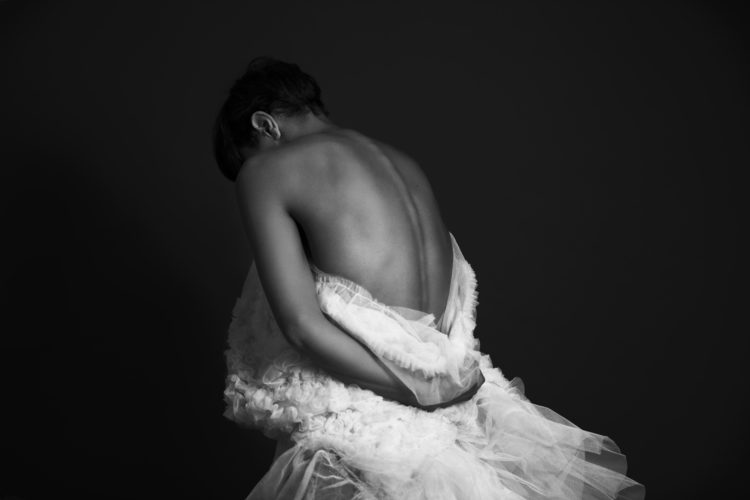Our newest Limitless profile is on the Togolese French singer Laura Prince, whose début album Peace of Mine is a transcultural blend of jazz, soul and African music. She is pushing for new instrumentation that builds on her dual heritage, and on her many influences from around the world. She tells us why she is making statements around her own version of fusion.

One day, not too long ago, Laura Prince just decided that it was time make a new album. She didn’t really remember how, exactly, she started the process of crafting that new album, but she does know that her default mechanism is to create songs on her piano.
She’s been doing it since she was 14-years-old. One of her aunts had just died after fighting brain cancer, and something changed for her. She wrote something different, and a good friend of hers, David Sonder asked if he could listen to her new songs. As soon as he gave her his seal of approval, she pushed a little further in the direction of her latest experimentations.
She contacted a pianist called Gregory Privat, and together they started working on the album, enlisting Inor Sotolongo, Tilo Bertholo and Zacharie Abraham along the way. These men happen to be some of the greatest musicians working in music right now, and they added their arrangements, the spice to the first ingredient in Prince’s music, which is jazz.
“To me, Jazz is a new beginning in Black American music,” she told us last month while on a cross-country trip in Togo, “and before jazz there was African music. So it was natural to add some Togolese percussions to a song like Flying Until, for example. That was one way to reconnect those two pillars of music and maybe also reconnect my own two sets of roots. The last ingredient, soul, comes from my voice, because I listen to many soul singers, like Etta James, Patti LaBelle, Donny Hathaway, Whitney Houston, and Jill Scott.”

Prince’s dual Togolese and French sensibilities continue to shape her approach to creating music. “I was born in a house where music was played 24 hours a day. My Togolese father used to play a lot of vinyls, and music from all over. It went from Miles Davis to Ray Charles, Miriam Makeba and Fela Kuti. Or it could be Koffi Olomidé and Lucky Dube. He even played classical music, Chopin, and opera when he put on Maria Callas. Then he could get into Ray Price for country music, pop with Elton John, or Prince.”

Laura Prince’s French mother played a role in her daughter’s musical education as well, by introducing her to French singers like Jacques Brel, Edith Piaf, and Charles Aznavour. “Since I was very young, my parents shaped my ears without knowing it. Of course, when I grew up these sounds influenced my musical choices, and my approach to creating music. This first album Peace of Mine was how I was able to channel all the feelings and sensations I keep from my travels to Togo starting when I was four-years-old, and also from the lullabies my mom used to sing to me when I was little.”
Prince studied sociology before switching to ethnomusicology at university in Paris, but she says she would have preferred to go to music school, which in France is a lot more expensive that university, because universities are funded by the state. She says the best thing about those studies is that she got to learn and understand the music of populations from all over the world by studying their rites and customs.
“There is a certain dichotomy between the Western way of learning music, which is based on writing down music, and which sometimes feels too theoretical, whereas the oral transmission of many forms of music from Africa is totally innate and inherent in the social life of the communities in which the music is created. I had my own vision. Rhythms, melodies, anyone can create music, no matter where they were born.”
With thanks to Africa No Filter who made this series possible.
